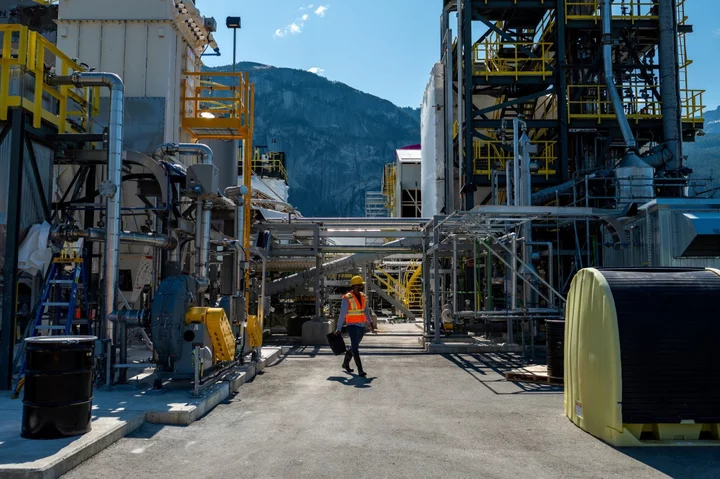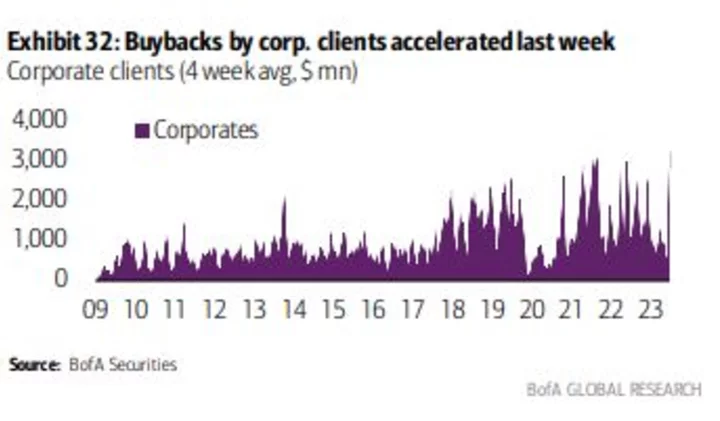Canada revealed new rules to ban some fossil fuel subsidies, targeting those that unfairly advantage oil and gas, solely support sector activities or endorse consumption of fuels that worsen climate change.
Environment Minister Steven Guilbeault billed the move as the first fulfillment among Group of 20 nations of a 14-year-old old climate promise. “This is a fundamental shift from what we’ve done in this country for decades,” he told a news conference on Monday.
G-20 leaders pledged in 2009 to “rationalize and phase out over the medium term inefficient fossil fuel subsidies.” However, they didn’t define which public supports would fall into that category or set a deadline for the ban.
In 2016, Canada, the US and Mexico promised to complete the phaseout by 2025. Prime Minister Justin Trudeau’s government since accelerated the timeline to 2023, and on Monday revealed how it would define a banned fossil fuel subsidy.
Under the framework, a fossil fuel subsidy will be banned if it disproportionately benefits the sector or solely supports fossil fuel activities or consumption. It must also meet the World Trade Organization definition of a subsidy, which is a government contribution or a form of income or price support that benefits the recipient.
But the government exempted subsidies that significantly reduce domestic or international emissions, as well as those that support clean energy, clean technology or renewable energy. It also exempted those that provide essential energy to remote communities, give short-term emergency support in an emergency and support Indigenous economic participation.
Finally, it exempted subsidies that support abated production processes or projects that have a credible plan to achieve net-zero emissions for 2030. Guilbeault has said previously that federal funding for carbon capture technology will be exempted.
Canada will submit its framework for peer review by other nations in the G-20. It expects that process will be completed in 2024.
The government said all nine existing tax measures that fall within the framework have already been phased out or restructured, including changes to the tax treatment of expenses associated with oil and gas drilling and development, as well as the ending of flow-through shares for oil, gas and coal.
The framework will also be applied to 129 non-tax measures. As well, the government established guidelines that it said will act as a screen to all future federal government transfers, spending and research.
Canada didn’t say how much money the industry stands to lose. It said the peer-review process will determine the dollar amount associated with existing non-tax measures and it’s difficult to calculate the impact on future spending.
Since the framework targets subsidies that disproportionately benefit fossil fuels, producers will still be able to access exploration and development expense deductions generally available to natural-resource projects — to the dismay of environmental groups.
The rules also don’t apply to public financing through Export Development Canada and other Crown corporations. “This is alarming given that Canada is one of the largest providers of fossil fuel financing in the G-20,” said Julia Levin of Environmental Defense.
Lawmaker Laurel Collins, whose New Democratic Party pushed for an end to fossil-fuel subsidies in its deal to prop up Trudeau’s Liberals, said her caucus had to “fight like hell” for Monday’s announcement but it still “doesn’t meet the urgency of the moment.”
A coalition of Canada’s largest oil sands producers — including Suncor Energy Inc. and Cenovus Energy Inc. — welcomed the exemptions for carbon capture and Indigenous partnerships and said it looked forward to working with the government to progress plans to reduce emissions from operations.
“The oil and gas industry in Canada is the opposite of a subsidized industry. In fact, the production and consumption of oil and gas is heavily taxed in Canada,” Kendall Dilling, president of Pathways Alliance, said in an emailed statement.
Canada has the world’s third-largest nationally proven crude reserves, and oil and gas represent as much as 7% of the country’s gross domestic product and a fifth of its goods exports. The country gave as much as C$20 billion ($15.2 billion) in support last year to the oil and gas sector, according to the International Institute for Sustainable Development.
--With assistance from Kevin Orland.
(Updates with industry reaction in 15th paragraph.)









